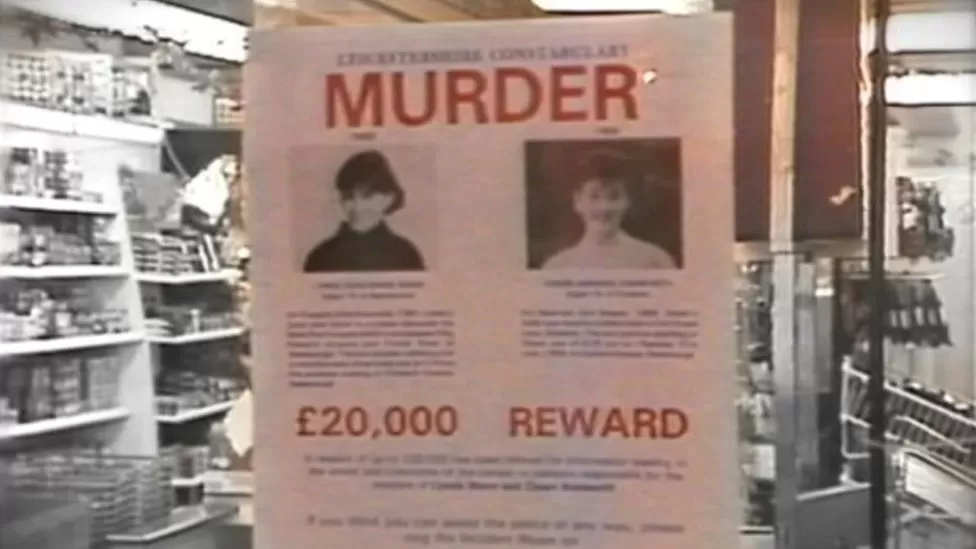The Parole Board’s decision to allow child killer Colin Pitchfork to be released from prison has been found to be “irrational” and will be reviewed again.
Pitchfork was jailed for life for raping and strangling two teenage girls in Leicestershire in 1983 and 1986.
The 63-year-old was released from jail in 2021 but was arrested and sent back to prison two months later.
He was then granted parole again, with the decision made on 15 June.
However, concerns about the danger he posed caused Lord Chancellor and Justice Secretary Alex Chalk to intervene, making what is known as an “application for reconsideration” on 5 July.
‘Decision was irrational’
A statement from the Parole Board said: “A judge at the Parole Board considered the application for reconsideration and granted it upon making a finding of irrationality.
“The judge considered that the panel had not placed sufficient weight on a number of factors in the evidence, which taken together meant that the decision was irrational.”
Pitchfork had not been released since the decision was made in June, because prisoners are always kept in prison for 21 days after a release decision is made.
The 21-day window is to allow for a reconsideration application to be made.
Pitchfork became the first murderer to be convicted using DNA evidence.
He was jailed for a minimum of 30 years in 1988 for the murder of Lynda Mann and Dawn Ashworth.
This was later reduced to 28 years for good behaviour.
The panel that considered Pitchfork’s release earlier this year consisted of two judicial members and a psychologist.
The judge who assessed the application for reconsideration said their task had been “a particularly complex and challenging one”.
Recall not justified
The judge said: “It cannot have been assisted by the requirement to consider whether the recall was justified, in addition to the substantive issue of re-release.”
The panel had reviewed the appropriateness of Pitchfork’s recall and found the decision to recall him was not justified.
It then needed to separately consider whether Pitchfork’s continued detention was necessary for the protection of the public, and this is the decision that has been found to be irrational.
Justice Secretary Mr Chalk said: “Public protection is our number one priority, which is why I asked the Parole Board to reconsider their decision to release Colin Pitchfork.
“I am pleased that he will now face a fresh review.”

New parole panel
South Leicestershire’s Conservative MP Alberto Costa, who has campaigned against Pitchfork’s release, welcomed the judge’s decision.
“It’s very rare that the Parole Board do this, even rarer for cases of this nature, so I think my South Leicestershire constituents, and indeed the country, should be pleased that the original decision to release Mr Pitchfork will now be completely reviewed on the grounds that it was irrational, and Mr Pitchfork will remain in prison,” he said.
A new parole panel, also consisting of three members, will now consider the case again.
Although the case will be re-reviewed, the new panel could come to the same decision as the previous one.
- Colin Pitchfork, 22 at the time of the first murder, was married with two sons. He was a baker who grew up in rural Leicestershire and lived in Littlethorpe
- In November 1983 he left his baby son sleeping in the back of his car and raped and strangled 15-year-old Lynda Mann in Narborough. He then drove home and put his son to bed
- Three years later, less than a mile from where Lynda died, he raped and murdered Dawn Ashworth, also 15, of Enderby. The pathologist who examined her body described it as a “brutal sexual assault”
- A police investigation initially led to the wrong person, a local 17-year-old who falsely confessed to one of the killings. After an unprecedented mass screening of 5,000 men using pioneering “DNA profiling” technology, Pitchfork was eventually caught. At first, he had evaded justice by persuading a colleague to take the test for him
- He pleaded guilty to both murders in September 1987 and was sentenced to life in January 1988. The judge said the killings were “particularly sadistic” and he doubted Pitchfork would ever be released
- In 2009, his 30-year life tariff was reduced by two years for “exceptional progress” – a decision that was strongly criticised by the families of his victims
- He was moved to an undisclosed open prison at some point prior to 8 January 2017, after his request for release
(Source: BBC)










